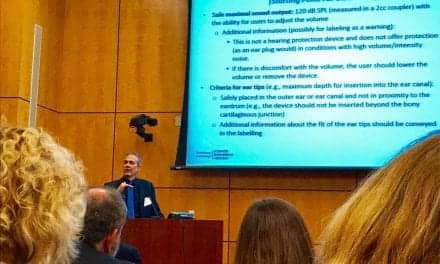Livonia, Mich — Indiana hearing aid specialists and other professions that require a license have defeated HB 1006, a deregulation bill that was withdrawn from consideration after strong opposition by the professional hearing health community and other affected professional groups.
“This was an important victory for Indiana consumers, and we are extremely pleased with the outcome,” said Jane Bowman,  BC-HIS, president of the Indiana Hearing Aid Alliance (IHAA) and member of the International Hearing Society (IHS). “As a licensed hearing aid specialist, I am required to uphold the highest level of standards when testing hearing and fitting customers with hearing devices. Without regulation, consumers’ safety would be compromised.”
BC-HIS, president of the Indiana Hearing Aid Alliance (IHAA) and member of the International Hearing Society (IHS). “As a licensed hearing aid specialist, I am required to uphold the highest level of standards when testing hearing and fitting customers with hearing devices. Without regulation, consumers’ safety would be compromised.”
The withdrawn bill was based on recommendations made by the Regulated Occupations Evaluation Committee (ROEC), released in December 2011. Similar to the sunset review process used by many states, the ROEC evaluation calls for a systematic review of all professional licenses within a 7-year period. The Committee of Indiana Hearing Aid Dealers was one of several committees being evaluated and recommended for elimination.
Several hearing aid specialists, as well as representatives from the other professions, attended a public hearing on January 20, 2012, held by the House Employment, Labor and Pensions Committee, to voice their opposition to the bill. Among those testifying were IHS members, West Virginia State Senator Clark Barnes, BC-HIS (R-Randolph), a hearing aid specialist licensed in West Virginia, and IHAA president, Jane Bowman, BC-HIS (pictured.)
Senator Barnes urged his legislative peers to vote against HB 1006 to preserve licensure and protect Indiana consumers. The outpouring of opposition to the bill led the sponsor and committee chair to recommend holding the vote until a later date. As a result of ongoing pressure by the public and opposition to the bill by several members of the committee, the bill was not taken up by the committee deadline and consequently is no longer eligible for consideration.
SOURCE: International Hearing Society (IHS)




